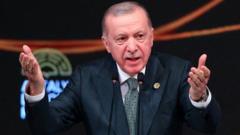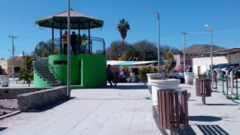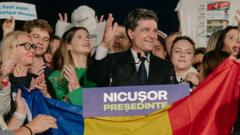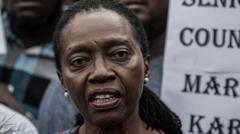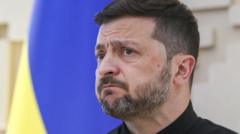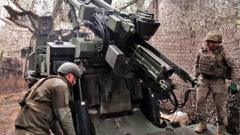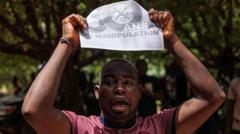Venezuela's President Nicolás Maduro is staging a controversial election for the governor and legislators of Essequibo, a resource-rich area recognized internationally as part of neighboring Guyana. This move, analysts suggest, is an attempt by Maduro to bolster his authority amid growing dissatisfaction at home and doubts about the loyalty of the military.
Venezuelan Elections Create Tensions Over Essequibo Region

Venezuelan Elections Create Tensions Over Essequibo Region
Venezuela's decision to hold elections in the contested Essequibo region raises international eyebrows and questions about legitimacy.
As the election approaches, analysts are pointing out the ramifications of Venezuela's political maneuvers. Despite Maduro's claims of electoral victories, last year's presidential election was marred by allegations of fraud, with many nations refusing to recognize his administration. Notably, internal reports indicated that a significant number of military personnel voted against Maduro, endangering his grip on power.
In this backdrop of contested sovereignty and waning domestic support, the electoral proceedings in Essequibo not only amplify regional tensions but also spotlight the broader instability within Venezuela’s political landscape. The legitimacy of the elections is under scrutiny, causing unease among citizens and international observers alike as the once-reliable infrastructures and alliances falter.
Given these developments, the stakes are high for both Venezuela and Guyana, as the ramifications of this election could reshape international relations and domestic governance for both nations.
In conclusion, as citizens prepare to cast their votes this Sunday, the world will be watching closely to see how this contentious political episode unfolds and what it means for the future of the region.
In this backdrop of contested sovereignty and waning domestic support, the electoral proceedings in Essequibo not only amplify regional tensions but also spotlight the broader instability within Venezuela’s political landscape. The legitimacy of the elections is under scrutiny, causing unease among citizens and international observers alike as the once-reliable infrastructures and alliances falter.
Given these developments, the stakes are high for both Venezuela and Guyana, as the ramifications of this election could reshape international relations and domestic governance for both nations.
In conclusion, as citizens prepare to cast their votes this Sunday, the world will be watching closely to see how this contentious political episode unfolds and what it means for the future of the region.



